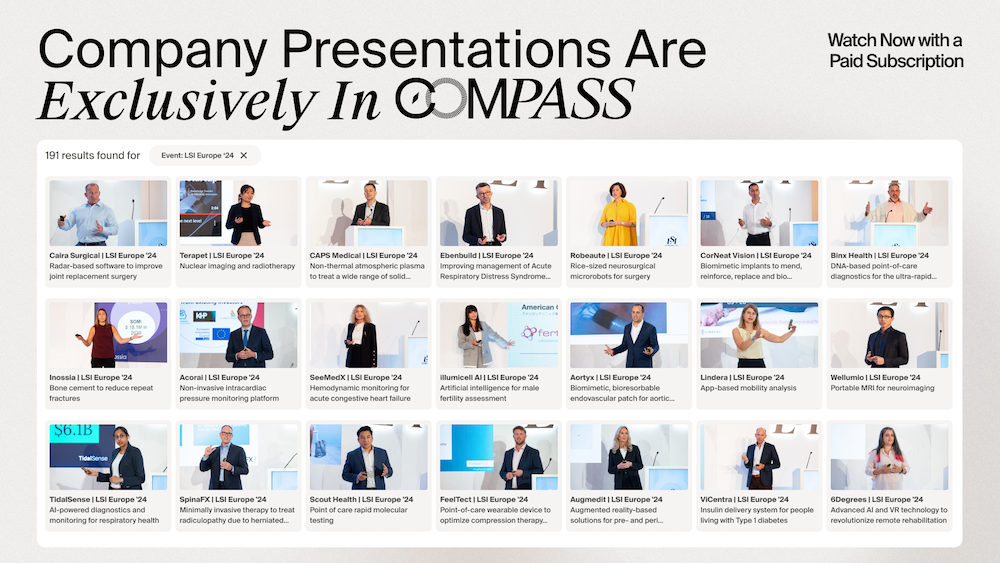- Video Library
- Peter Stebbins, Nurami Medical - Soft Tissue Repair Technologies | LSI Europe '22
Peter Stebbins, Nurami Medical - Soft Tissue Repair Technologies | LSI Europe '22
shaping the future of
Medtech at LSI USA ‘26
Waldorf Astoria, Monarch Beach
Peter Stebbins
As an Entrepreneurial MedTech leader, Peter scale businesses using my keen ability to swiftly understand a business, identify needs and opportunities, apply analytics and steer organizations in strategy implementation. He is known as a “5-tool player” with end-to-end business acumen. He uniquely has M&A excellence on both buy and sell sides and can galvanize cross-functional teams, partner with clinicians and inventors, and win market access. Peter has a passion for healthcare policy and am known as a connector and change agent who gets stuff done.
Peter Stebbins
As an Entrepreneurial MedTech leader, Peter scale businesses using my keen ability to swiftly understand a business, identify needs and opportunities, apply analytics and steer organizations in strategy implementation. He is known as a “5-tool player” with end-to-end business acumen. He uniquely has M&A excellence on both buy and sell sides and can galvanize cross-functional teams, partner with clinicians and inventors, and win market access. Peter has a passion for healthcare policy and am known as a connector and change agent who gets stuff done.
17011 Beach Blvd, Suite 500 Huntington Beach, CA 92647
714-847-3540© 2026 Life Science Intelligence, Inc., All Rights Reserved. | Privacy Policy







